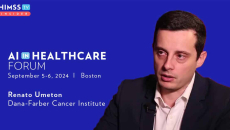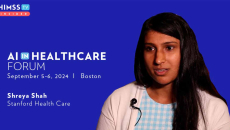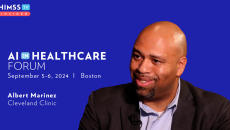Operations
To ensure proper AI use in healthcare, chief AI officers must be proactive, reach out to colleagues, develop valuable relationships and set up informational sessions, says Dennis Chornenky, UC Davis Health chief AI advisor.
Chief AI officers should have a strong sense of what the AI policy regulatory environment looks like and an understanding of business strategy, technology and domain expertise, says Dennis Chornenky, chief AI advisor at UC Davis Health.
Dugan Winkie, head of commercial strategy at Cedar, discusses the revenue cycle management-focused company and how it works with strategic partners to ensure payments are satisfied using conversational AI and empathetic communication.
Maite Malet, Asabys Partners director of investments and corporate development, discusses the Barcelona-based firm’s €180 million ($200 million) raise and its plans invest in 12 to 15 health tech companies to expand from the EU to the U.S.
Medical illustrator David Bolinsky, E.mersion Studios CEO and creative director, creates animations representing molecular and cellular biology, and says AI image generators’ hallucinations may affect scientific medical illustration.
Jenn Kerfoot, chief strategy and growth officer at DUOS, discusses why only seven plans made five stars for Medicare Advantage Star Ratings, as opposed to 30 the previous year, and how plans can ensure a positive rating in the future.
Renato Umeton, director of AI operations and data science at Dana-Farber Cancer Institute, discusses building a secure environment to test and deploy LLMs to ensure responsible use, continuous innovation and limited access to outside AI tools.
Dr. Zafar Chaudry, Seattle Children's chief digital officer and chief AI and information officer, discusses the importance of effective change management during AI implementation - and using AI as a tool rather than a stand-alone solution.
Shreya Shah, medical informatics director at Stanford Health Care, discusses the health system's use of genAI for patient message replies and ambient AI scribes to reduce the clinical documentation burden.
Albert Marinez, chief analytics officer at Cleveland Clinic, discusses how genAI is an order of magnitude higher than traditional strategies and how a lot of problems can be solved with traditional machine learning and predictive analytics.









